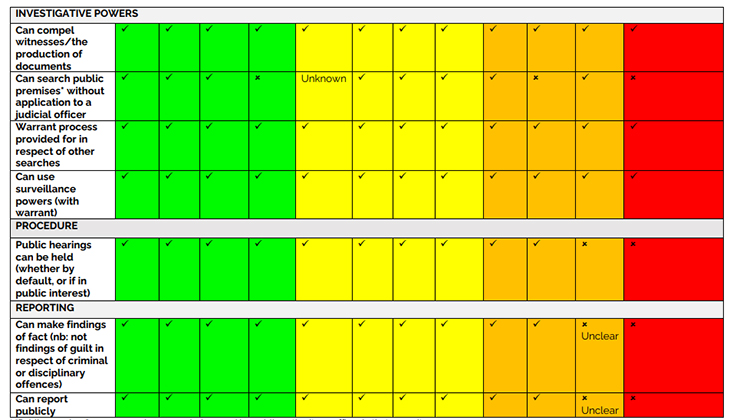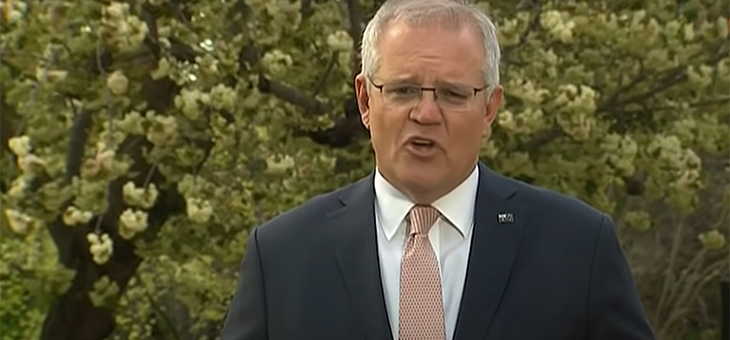Corruption is once again making headlines around the country, with Gladys Berejiklian standing down as NSW Premier last week after it was revealed that she was being investigated by the Independent Commission Against Corruption (ICAC).
The federal government promised to create a corruption watchdog more than 1000 days ago, but the situation in NSW may finally have been the catalyst for some movement in this direction.
Senator Amanda Stoker said that the government was expected to introduce its integrity commission model into federal parliament by the end of the year.
Read: Calls for scrutiny of Canberra’s $1 billion spent on ‘secret reports’
Prime Minister Scott Morrison told Sunrise on Tuesday that he did not want to introduce a panel similar to ICAC in the wake of Ms Berejiklian’s resignation.
“It’s certainly not a model that we ever consider at a federal level,” he said.
However, the model for his Commonwealth Integrity Commission (CIC), has been criticised for being far too weak, with research from the Centre for Public Integrity showing it would be the weakest watchdog in the country.
Read: Disaster payments to be scaled back as vaccinations rise
The analysis of all state and territory integrity commissions found that those in NSW and Queensland were the strongest and most effective.
This was because they had the ability to investigate any conduct of any person that affects the impartial exercise of public administration, which allows investigations of those outside the public service.
The NSW and Queensland systems are also highly rated because they do not limit investigations to criminal conduct.
Read: Which politician is spending the most on Facebook advertising?
Other strengths of the NSW and Queensland systems include the ability to begin investigations without satisfying a threshold of evidence, which means that they can be used to find out whether any misconduct has occurred, the ability to hold public hearings if they are in the public interest and the ability to make findings and report publicly.
None of these features are included in the government’s proposed CIC legislation.


On Tuesday, the Greens and Independent MP Helen Haines signalled that they would seek to toughen the federal CIC powers and force a debate on private members’ bills for a body with more extensive powers.
“The government’s proposed CIC would be the weakest watchdog in the country,” said Anthony Whealy QC, former judge and chair of the Centre for Public Integrity.
“It would not be able to begin investigations into the majority of cases, as it is limited to only investigating a specific list of criminal offences,” said Mr Whealy.
Stephen Charles QC, director of the Centre for Public Integrity, said the government’s model was so bad it would have the opposite of its intended effect.
“It would hide corruption, not expose it,” said Mr Charles, a former judge.
“The inability to hold public hearings and table reports would mean the public is left in the dark.
“The CIC falls short of its state counterparts on almost every level. It is a breed of its own and does not deserve to be a called a watchdog.”
Labor’s shadow attorney-general, Mark Dreyfus, was also critical of the fact the CIC would not have retrospective investigative powers.
“It has to be able to look into the past,” he told ABC Radio on Tuesday.
“It should be able to receive complaints from any source, to be able to receive referrals from any source … The model that the government’s putting forward is much too limited. It wouldn’t be independent. It wouldn’t be powerful enough.”
What power do you think a federal anti-corruption commission should have? Why do you think the federal government has delayed creating an anti-corruption commission for so long? Why not share your thoughts in the comments section below?
If you enjoy our content, don’t keep it to yourself. Share our free eNews with your friends and encourage them to sign up.

